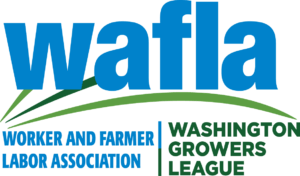In Our View: Immigrant workers vital to state, U.S. economy
In Our View: Immigrant workers vital to state, U.S. economy
April 16, 2025
Editorial by the Columbian (Vancouver)
Although it is necessary to secure America’s borders and to diligently enforce immigration laws, President Donald Trump’s aggressive measures could be deleterious. Despite common rhetoric to the contrary, our nation’s economy depends on immigrant workers — both documented and undocumented — particularly in the agriculture industry.
Trump last week hinted at measures to allow farmworkers to return to the United States and allow employers to hire them. Details are sparse — and confusing — but the administration should quickly work with Congress to support American farmers.
“We’re going to work with people so that if they go out in a nice way, go back to their country, we’re going to work with them right from the beginning on trying to get them back in legally,” Trump said Thursday during a Cabinet meeting at the White House. “It gives you real incentive. Otherwise they never come back. They’ll never be allowed once a certain period of time goes by, which is probably going to be 60 days.”
We are not quite certain what that means, but migrant workers are essential. Nearly half of the United States’ farmworkers are undocumented immigrants, and many of them are migrants who return to their native countries for part of the year.
That issue has been obfuscated by much of the rhetoric surrounding immigration. Many Americans who favor mass deportations and strict border control — including Trump — suggest that undocumented immigrants take jobs from Americans who are willing and able to work. Such suggestions are grossly inaccurate.
For one example, Enrique Gastelum, chief executive of the Washington Farm Labor Association, told The (Everett) Herald: “We still don’t have the U.S. domestic workers coming in to fill jobs. No one is ready, willing and able to do that work here in Washington. In 2022, we had 33,000 available jobs and we had 11 U.S. workers apply for those jobs.”
Other evidence points to the same conclusion — there are not enough Americans to fill jobs in agriculture, construction and domestic services. And a lack of workers will slow production and cause prices to increase.
As Jeff Luckstead, a professor of agricultural economics at Washington State University, told The Wenatchee World: “The real issue is there’s this relatively small labor supply, and if mass deportation occurs, that’s going to shrink the labor supply further. … Even without this mass deportation, growers have been struggling to figure out ways to get around the labor issue. This is just going to make it worse.”
Trump has tepidly acknowledged this. Last week, he said: “We have to take care of our farmers and hotels and, you know, various, various places where they’re using, where they need the people. We’re also going to work with farmers that if they have strong recommendations for their farms for certain people, we’re going to let them stay in for a while and work with the farmers and then come back and go through a process, a legal process.”
A legal process is important, as is enforcement of the law. But farmers cannot wait for coherence from the executive branch. Growing season for Washington apples, wheat and potatoes is underway, and the harvest season will arrive in late summer. Those products drive agriculture in Washington and are crucial for the state’s trucking industry and ports.
They also are crucial for our dining room tables. If we want to enjoy Washington cherries, apricots and raspberries this summer, our state’s growers will need workers to pick them.
